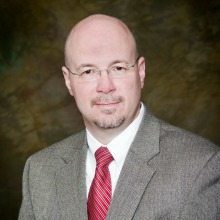
Dave Papas is Vice President of Homeland Security Business at QinetiQ North America. Papas has more than 17 years of experience in enterprise network and cyber security, data management design and implementation, technical engineering, technical business development, and P&L management.
Prior to joining QNA, Papas held leadership roles with General Dynamics and Secure Computing Corporation. He also served as the information operations security manager for the U.S. Army Intelligence and Security Command, where he was responsible for the creation, initial operational design, and operational standup and functionality of the first U.S.Army CERT World-Wide Operations.
We recently spoke with Papas and he shared his insights on how he defines big data, how big data is impacting the Intelligence Community, monetizing big data and much more.
WashingtonExec: How is big data changing the intelligence community?
David Papas: I don’t think big data is necessarily changing the intelligence community. However, I do think it is enabling the intelligence community to create a unique approach towards solving the problem of actionable intelligence. I think Big Data is also being looked at as an enabling capability that is just getting out of the gate.
WashingtonExec: Some technologists have said that the largest issue with big data is not in regards to technological advancement but it’s a cultural one with getting leaders comfortable with releasing their data. Do you agree or disagree?
David Papas: I agree with that. Big data is not something new. However, because of the rapid growth of data that is being placed on networks through social media, different mobile devices and the growing enterprises, the pervasiveness of the Internet continues to grow. I think organizations are trying to figure out how they can use that data to make better business decisions. With this new paradigm shift in technology, there is a group of business leaders having a hard time trying to wrap their heads around the value of sharing information. What they are looking for is how to leverage Big Data to empower an organization to make rapid decisions with greater accuracy.
_________________________________________________________________________________
“I don’t think Big Data is necessarily changing the intelligence community. However, I do think it is enabling the intelligence community to create a unique approach towards solving the problem of actionable intelligence”
___________________________________________________________________________________
WashingtonExec: There has been discussion about citizens being paid by businesses to use their data. Have you been hearing this at all?
David Papas: Yes, I’ve heard of it while I was chief operating officer at a company called Cyveillance, which is a QinetiQ North America company. Organizations are constantly trying to figure out the value of their data, as well as keep all of their clients’ information very privileged and confidential. The questions that need to be considered are what can they share and how they share it. I think it is still a very tough decision and in that case most organizations tend to be extremely protective – as they should. Media sources and different social media mechanisms and businesses are typically the ones more apt to share their information and combine it with other organizations’ information to bring more value to it. I think it’s more on the social media—the open business side versus the direct business side—where the right security information management controls have to be in place.
WashingtonExec: What is your definition of big data?
David Papas: Big data used to be referred to as enterprise data management on a large scale. When you look at big data today and the discussions across the community, you have to define big data as not only the data itself but also the applications and infrastructure that are applied to manage it and make it accessible. To me, big data is the massive amount of data that is being collected by organizations, and the applications that are in use or are being developed to take advantage of that data. It then becomes meaningful information so business decisions can be made.
WashingtonExec: Big data is now shifting from data collection and storage to data intelligence and analysis. How have you been able to monetize big data?
David Papas: I would say that from a monetization perspective, organizations are going to have to monetize it at the individual project or company level. Big data, as an approach, can solve a lot of problems, so it is going to be monetized by different organizations in different ways. I don’t believe there is one way today to show the monetary value or monetization of big data across the board. However, I do believe that in the near term there will be organizations that will look at how to create a value position and prove it against the old ways of dealing with data. This will ultimately bring the monetary value to the new approach.
WashingtonExec: What is your favorite mobile app?
David Papas: A traffic application called Waze. I use it extensively because I’m a heavy traveler of the I-95 corridor between Quantico and D.C. I like it because the approach is very well thought out and well applied. Users can enter where they are with one or two clicks. The crowd-sourcing aspect allows people to quickly provide information on the flow of traffic, any issues, and diversions. At the same time, because of the GPS enabled devices within the application, you are able to know who is around you, traffic conditions and the rate of speed at any given route. I think it is one of the cleanest, simplest applications of crowd-sourcing for social media, and because of that, I just love it. It’s something that is just with me wherever I go.
WashingtonExec: What was your first job?
David Papas: I was an ROTC graduate and a platoon leader in South Korea with the U.S. Army where I served in many different roles with the 2nd Infantry Division. Following that, I became a program manager at Fort Belvoir. I pretty much took off my military uniform and turned into a fully supportive defense contractor because I wanted to continue the mission that I loved so much.


